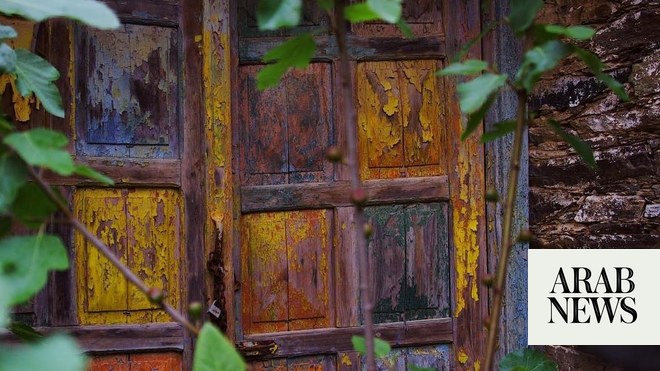
As most of their leaders were in detention until recently, it is the first time any major political activity has taken place in the state since last year
NEW DELHI: Six political parties in Jammu and Kashmir came together on a single platform on Saturday to fight for the restoration of the region’s special constitutional autonomy, which was revoked by India last year.
On Aug. 5, 2019, New Delhi scrapped Articles 370 and 35A of the constitution that granted autonomy to the region.
The Bharatiya Janata Party (BJP) government also divided the state into two federally administered units — the Union Territory of Ladakh and the Union Territory of Jammu and Kashmir.
The move was followed by a crackdown on political activity, arrests of hundreds of political leaders and activists, and a complete lockdown of the region.
“We are committed to strive for the restoration of Articles 370 and 35A, the constitution of Jammu and Kashmir and the restoration of the state and any division of the state is unacceptable to us,” the six parties said a joint statement, calling the August decision a “shortsighted and unconstitutional move,” an attempt to “challenge the basic identity” of the region, and “coerce people into submission.”
The six include the former ruling parties of the state — the National Conference (NC), the People’s Democratic Party (PDP), and the Congress party — and three smaller groups, the Jammu and Kashmir People’s Conference, the Communist Party of India-Marxist (CPI-M), and the Awani National Conference (ANC). As most of their leaders were in detention until recently, it is the first time any major political activity has taken place in the state since last year.
“We want to assure the people that all our political activities will be subservient to the sacred goal of reverting to the status of Jammu and Kashmir as it existed on 4th August 2019,” the statement read.
The call was immediately dismissed by the BJP as “an attempt by leaders to show their political presence.”
Srinagar-based BJP leader Hina Bhat told Arab News: “I don’t think this kind of declaration is going to have any effect in Kashmir. It’s just an attempt to show their political presence.
“We don’t need Articles 370 and 35A for the development of Kashmir. We don’t need any other articles to be restored or removed. What we need is development and everyday peace in Kashmir,” she added.
Meanwhile, Kashmir-based political analysts see the fact that New Delhi gave the six parties room to speak as a semblance of an “exit strategy” from the mess it had created in the region.
“What I feel is that after the abrogation of the special status, Kashmir is in shambles. India has been unable to manage it,” Dr. Sheikh Showkat Hussain of the Srinagar-based Central University of Kashmir said.
“India has lost whatever constituency it has, militancy has increased. It is difficult to sustain such governance for a long time at the cost of international image and (amid) regional pressures. It is part of the exit strategy of New Delhi,” he added.
Srinagar-based rights advocate Gowhar Geelani linked Saturday’s development with a recent meeting between the foreign ministers of China and Pakistan.
“The joint statement was made public a day after the foreign ministers of China and Pakistan met in Beijing and restated that the Kashmir issue is a dispute left over from history, and should be resolved through the UN and relevant UN Security Council resolutions and bilateral agreements,” he told Arab News.
The foreign ministers’ meeting came amid an ongoing military standoff on the Indian-Chinese border in Ladakh, which is a part of the larger region of Kashmir.
The Himalayan region has long been a flashpoint in ties between India and Pakistan, which both claim it in full but rule it in part.
“It is difficult to predict how Delhi will react. Punishing Kashmir brings the ruling party dividends in electoral politics in mainland India. But here we cannot underestimate the external factors: China and Pakistan,” Geelani said.
“It appears that some flexibility will have to be shown at some point in time to avoid a bigger catastrophe.”












